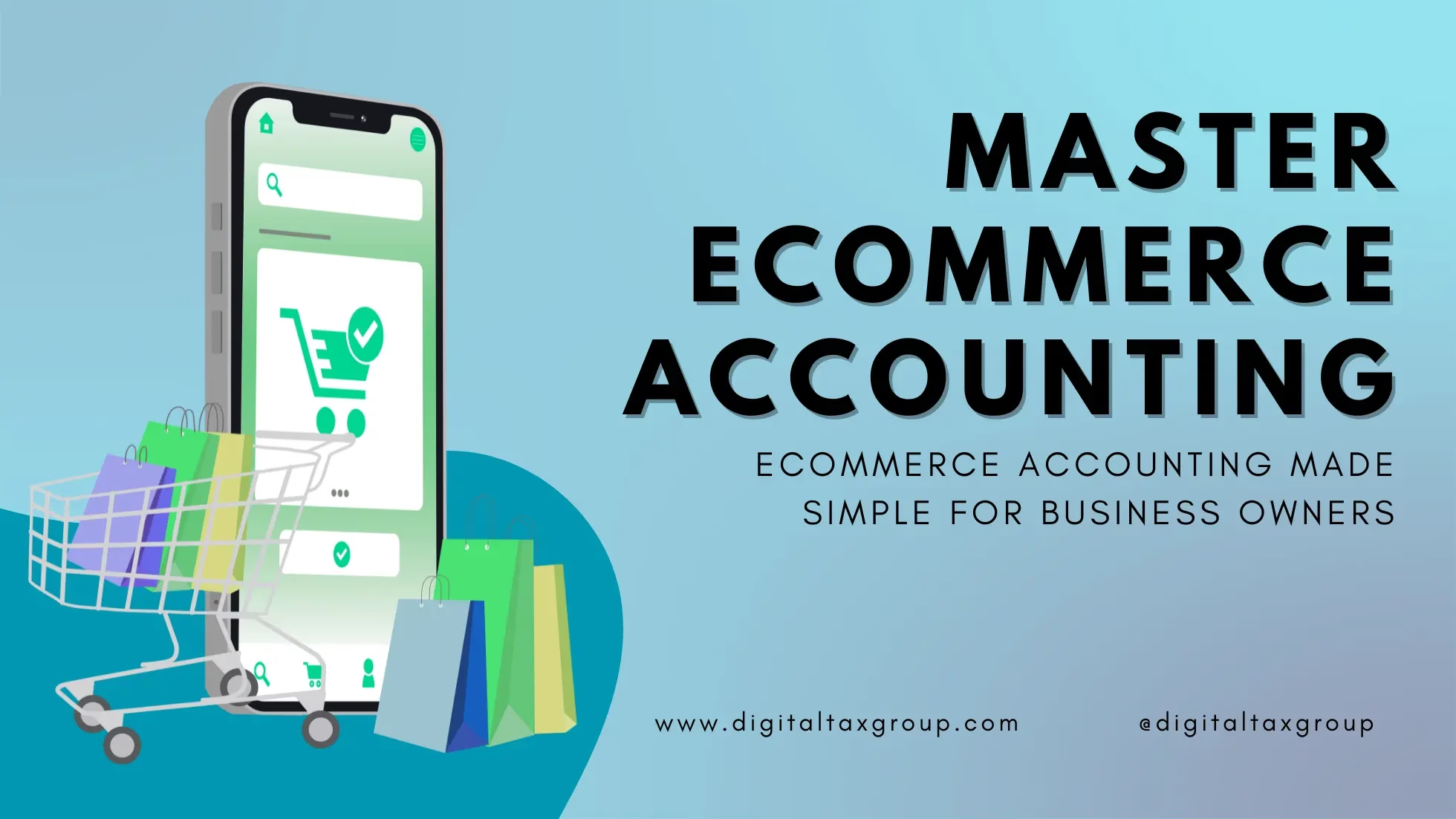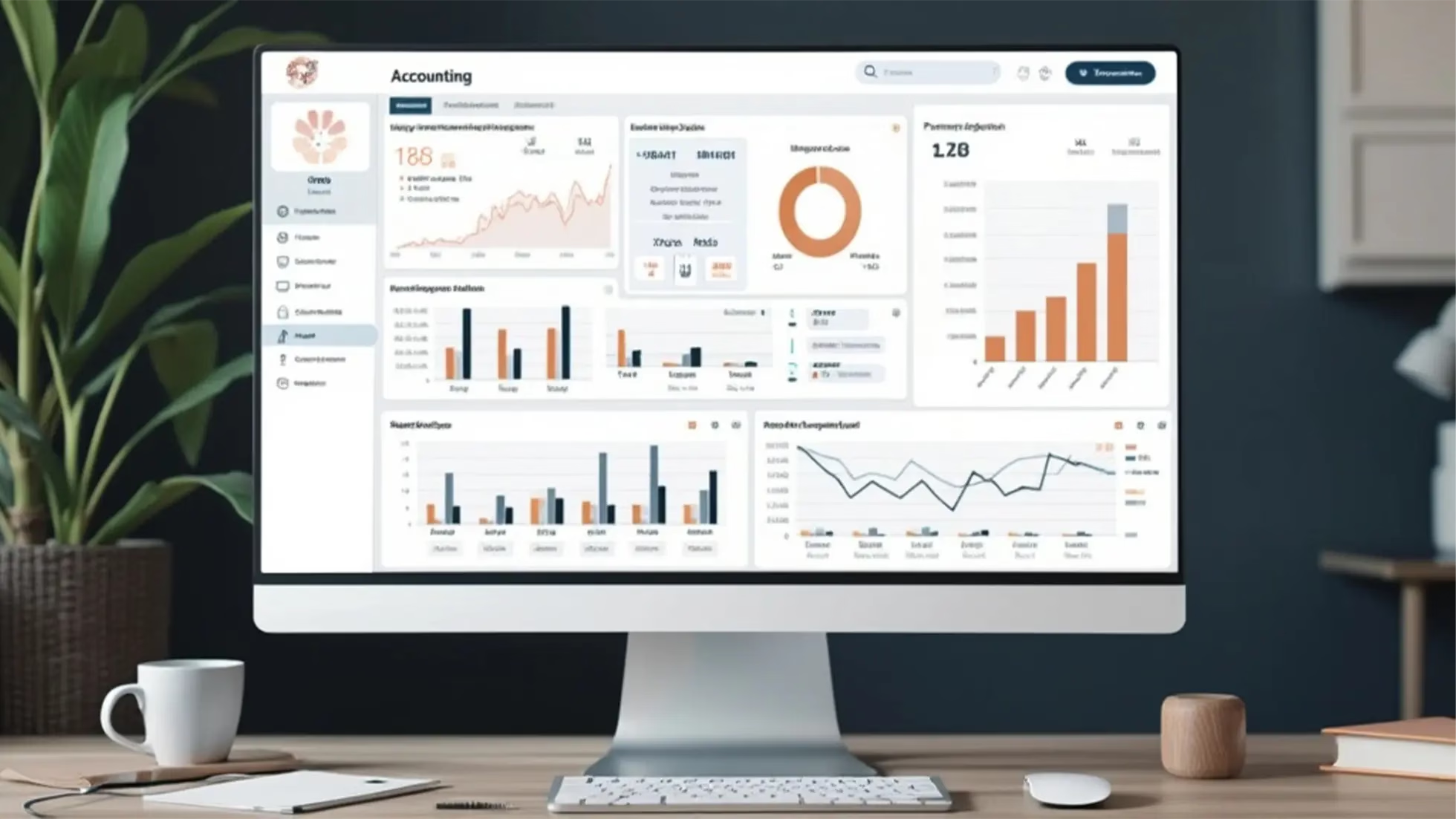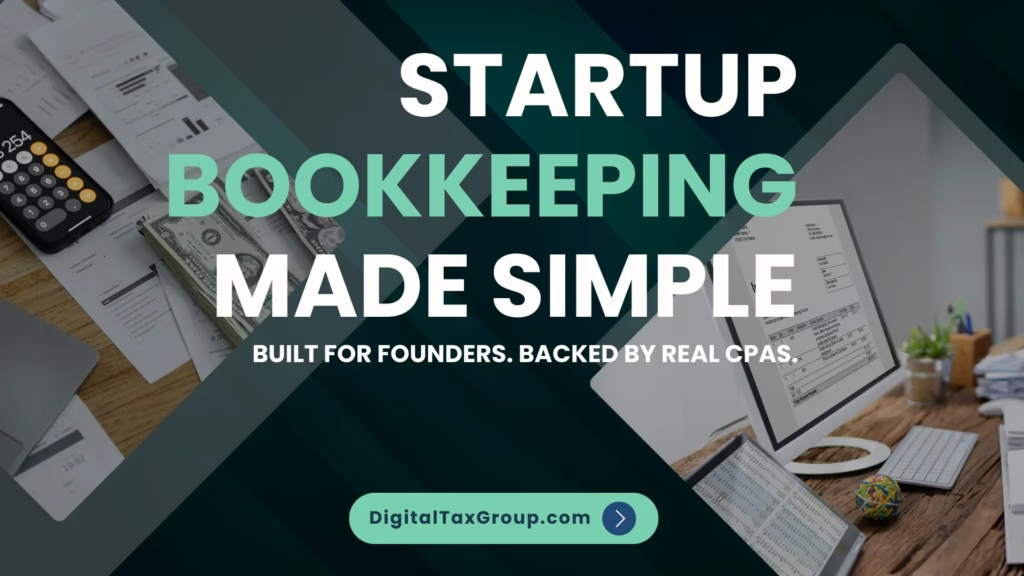In today’s booming digital economy, e-commerce accounting has transformed the way small businesses grow, sell, and scale. But with this growth comes complexity, especially when it comes to managing your finances. Whether you’re a seasoned ecommerce entrepreneur or just launching your first Shopify store, understanding ecommerce accounting is essential to making informed business decisions, staying compliant, and keeping your profits on track. This guide to ecommerce accounting is built specifically for business owners who need clarity, structure, and confidence in their accounting practices.
Let’s break it all down so your ecommerce business can thrive—without letting the numbers get in the way.

What Is Ecommerce Accounting?
Understanding Accounting for Ecommerce Businesses
Ecommerce accounting refers to the process of collecting, organizing, and interpreting financial data related to your online business. Unlike traditional accounting, ecommerce accounting involves multiple sales channels, varied payment processors, and complex sales tax requirements—all of which demand a more tailored accounting approach.
For an ecommerce seller, managing finances without a specialized system can quickly spiral into chaos. That’s why many ecommerce business owners need more than just general knowledge—they need an ecommerce accounting guide that addresses their unique needs.
Accurate accounting is the foundation of a successful ecommerce business. It ensures you maintain reliable accounting records, meet tax obligations, and can confidently plan for growth.
Key Accounting Terms Ecommerce Business Owners Need to Know
To get started, here are some critical terms and principles that every e-commerce business owner should understand:
-
Accounting Principles: These include generally accepted accounting practices (GAAP), which form the standard framework for financial reporting.
-
Bookkeeping: The day-to-day tracking of transactions like inventory purchases, customer sales, returns, and merchant fees. Proper e-commerce bookkeeping ensures that all your financial data is recorded in real time.
-
Accounting Methods: There are two main methods—cash accounting and accrual accounting. Choosing the right accounting method can drastically impact how your finances appear and how taxes are calculated.
-
Sales Tax: Sales tax in ecommerce can be tricky, especially if you’re selling across state lines or through platforms like Amazon and Shopify. Each jurisdiction may have its own rules, making tax compliance more complex.
-
Accounting Software: The right ecommerce accounting software will streamline your entire process—helping you automate entries, track ecommerce sales, and generate financial reports.
Need help making sense of these terms or choosing the best ecommerce accounting system? Schedule a consultation with Digital Tax Group or email directly to get personalized advice for your online business.
Choosing the Right Ecommerce Accounting Method
Two Accounting Methods: Cash vs. Accrual
When setting up your e-commerce accounting system, the first decision you’ll face is choosing between cash basis accounting and accrual accounting.
-
Cash accounting method records transactions when money changes hands—making it simple and appealing for small business owners just starting out.
-
Accrual basis accounting records income and expenses when they are incurred, not when cash is received or paid. This method offers a clearer picture of your ecommerce business’s financial health.
Most e-commerce companies find that accrual accounting provides a more accurate accounting framework, especially as operations scale. However, each business is different, so it’s critical to assess your specific accounting needs before locking into a method.
Still unsure which method is right for your e-commerce business? You can call Digital Tax Group or visit the contact page for expert guidance.

Essential Accounting Tasks for Ecommerce Sellers
Accurate accounting is more than just tracking revenue. For e-commerce business owners, it’s about keeping detailed financial records, ensuring tax compliance, and making confident decisions. Whether you’re running a Shopify store, selling on Amazon, or managing multiple platforms, mastering these accounting tasks can make or break your business.
Ecommerce Bookkeeping and Daily Financial Tracking
E-commerce bookkeeping forms the backbone of your financial operations. It includes organizing every transaction that takes place in your ecommerce store, such as:
-
Customer purchases
-
Refunds and chargebacks
-
Inventory purchases
-
Merchant fees (e.g., PayPal, Stripe)
-
Shipping expenses
Why it matters:
Without clean and up-to-date accounting records, you can’t measure profit margins, track cash flow, or prepare for taxes. For many ecommerce businesses that sell high volumes daily, delayed bookkeeping can lead to serious inaccuracies.
“Bookkeeping is not just data entry. It involves determining how transactions, such as principal and interest payments, should be recorded. In many cases, it also involves applying the receipt of payments to invoices and the payments to be applied to bills to close them out. Transactions may also require various adjustments for the fees charged by marketplace facilitators such as Amazon or Etsy.”
Working with a team that understands the complexities of ecommerce bookkeeping, like Digital Tax Group, helps ensure your accounting processes are always audit-ready.
Managing Sales Tax Across States and Platforms
Sales tax is one of the biggest headaches in e-commerce accounting. Unlike traditional accounting for brick-and-mortar businesses, ecommerce tax rules vary based on:
-
Customer location
-
Sales volume
-
E-commerce platform used (Shopify, Amazon, Etsy)
A good ecommerce accounting system should include automation for sales tax tracking, especially as thresholds for tax nexus can vary from one state to another.
Key challenges include:
| Challenge | Solution |
|---|---|
| Tracking multi-state sales | Use cloud-based accounting software |
| Automating collection | Set up native tools in your ecommerce platform |
| Filing accurate returns | Hire a good ecommerce accountant |
Schedule an appointment with a tax compliance expert to ensure your ecommerce business meets all state and local requirements.

Using Accounting Software to Simplify Your Workflow
Best E-commerce Accounting Software Options
Choosing the best ecommerce accounting software is crucial for automating tasks and maintaining accurate reporting. Some top choices include:
-
QuickBooks Online – Cloud accounting software ideal for small business operations.
-
Xero – A flexible accounting solution popular with ecommerce companies.
“Using accounting software helps your ecommerce business stay organized, scalable, and stress-free.”
When selecting a solution, consider these factors:
-
Does it sync with your ecommerce platform?
-
Can it manage inventory and sales tax?
-
Does it support accrual and cash basis accounting?
If you need help deciding, Digital Tax Group offers ecommerce accounting services tailored to your platform and growth stage.
Cloud-Based Tools for Scaling Your Online Business
Cloud-based software offers real-time access to financial data, which is essential for busy ecommerce entrepreneurs. It supports collaboration with your ecommerce accountant and eliminates the need for constant manual entry.
Benefits include:
-
Automated syncing with sales channels
-
Easy access from any device
-
Secure backups and data encryption
Using popular cloud accounting software can transform how you handle your accounting tasks. For personalized guidance on choosing the right ecommerce tools, contact Digital Tax Group or email them directly.
Specialized Ecommerce Accounting Services
Not all accountants understand the unique challenges ecommerce businesses face. From managing high transaction volumes to reconciling across multiple ecommerce platforms, ecommerce accounting requires specialized knowledge and tools. That’s why working with an ecommerce accounting specialist can be a game-changer for your business.
Why You Need a Specialized Ecommerce Accountant
A good ecommerce accountant goes beyond basic number-crunching. They help your ecommerce business:
-
Maintain accurate accounting across sales channels
-
Navigate complex ecommerce tax regulations
-
Optimize deductions and inventory management
-
Use accounting to get better visibility into profitability
Key ways an ecommerce accountant plays a role:
| Role | Benefit |
|---|---|
| Financial Advisor | Supports business decisions with real-time data |
| Tax Strategist | Ensures tax compliance and reduces liability |
| Platform Integrator | Connects accounting software to ecommerce systems |
| Reporting Analyst | Delivers monthly or quarterly insights |
Many ecommerce companies try to cut costs by managing their own finances. But as your store grows, small mistakes become big ones. That’s where Digital Tax Group comes in—schedule a call with their ecommerce accounting team today.
When to Hire an Ecommerce Accounting Service
If you’re experiencing any of the following signs, it might be time to outsource your accounting:
-
You struggle with reconciling Shopify or Amazon payouts
-
You’re unsure about sales tax filings in multiple states
-
You don’t have time to manage bookkeeping or financial reporting
-
Your accountant doesn’t understand ecommerce accounting methods
-
You need help setting up your accounting system properly
“Hiring an accounting firm that understands ecommerce can save you time, money, and stress.”
Digital Tax Group offers a wide range of accounting services built for online businesses, including ecommerce bookkeeping, tax compliance, and outsourced CFO support.

Accounting for Shopify, Amazon, and Other Ecommerce Platforms
Ecommerce businesses today are rarely tied to just one platform. Many sell across Shopify, Amazon, Etsy, and more. That’s why your accounting practices must be flexible and automated enough to adapt to multi-channel complexities.
Platform-Specific Considerations
Every ecommerce platform has its quirks:
-
Shopify provides built-in analytics but often lacks detailed accounting reports
-
Amazon accounting involves reconciling frequent deposits and handling complex fee structures
-
Multi-platform sellers must account for platform fees, refunds, and inventory separately
What ecommerce business owners need to know:
-
Use an ecommerce accounting software that integrates with your specific platform
-
Categorize deposits correctly to avoid confusion
-
Monitor COGS (cost of goods sold) accurately per channel
“Proper accounting for ecommerce platforms gives you clarity—and keeps you out of trouble with the IRS.”
If you’re unsure how to get started, contact Digital Tax Group or call their Miami office at (786) 707-3077. Their team helps ecommerce business owners choose the right ecommerce accounting solution and implement it properly.
Common Pitfalls and How to Avoid Them
Running a successful ecommerce store means staying on top of both marketing and money. Yet many ecommerce business owners overlook the importance of proper accounting until it’s too late. Missteps in accounting can lead to cash flow issues, tax penalties, or poor business decisions that slow down your growth.
Accounting Mistakes Ecommerce Businesses Often Make
Some of the most common accounting mistakes ecommerce entrepreneurs face include:
-
Mixing personal and business finances
-
Using the wrong accounting method for the business size or complexity
-
Not tracking inventory accurately
-
Ignoring tax and accounting requirements like quarterly filings
-
Neglecting financial reporting that drives strategic decisions
These issues often stem from either a lack of time or accounting knowledge. While many ecommerce business owners start off managing finances manually, as your ecommerce sales increase, the risks of human error grow exponentially.
“Accounting are important for ecommerce because without clarity in numbers, you’re flying blind.”
Adopting the right ecommerce accounting methods and leveraging professional bookkeeping services ensures your business remains on solid ground. That means hiring an accounting firm that understands the unique needs of ecommerce companies—not just any CPA.

How to Make Your E-commerce Business Audit-Ready
Keeping your ecommerce accounting clean is not just about being organized—it’s about being compliant, accurate, and ready for anything. Whether you’re preparing for tax season or seeking funding, your accounting records should reflect a transparent, audit-proof history.
To make your business audit-ready:
-
Open a dedicated business bank account
-
Use cloud-based accounting software like QuickBooks or Xero
-
Maintain consistent bookkeeping and accounting practices
-
Store receipts, invoices, and statements in one centralized system
-
Ensure your financials follow standard accounting principles
If the idea of doing all this alone feels overwhelming, you’re not alone. Many ecommerce businesses turn to external support for help, especially when they hit a threshold of complexity. At Digital Tax Group, you can schedule an appointment with a seasoned expert who understands the complexities of ecommerce and provides an accounting solution designed to make your ecommerce life easier.
Take Control of Your Ecommerce Accounting Today
Ecommerce accounting isn’t just about balancing books—it’s about building a strong foundation for growth. Whether you’re a small business selling from your garage or a large ecommerce operation with multiple warehouses, the right ecommerce accounting service can give you clarity, peace of mind, and strategic insights.
The team at Digital Tax Group, led by Principal CPA Ian Borbolla, offers expert accounting for online businesses of all sizes. From Shopify to Amazon and beyond, they help ecommerce business owners choose the right tools, systems, and strategies.
Need to connect? Email the team, give them a call, or reach out directly to get personalized support for your accounting needs.
“Effective ecommerce accounting isn’t just a cost—it’s an investment in the future of your store.”



